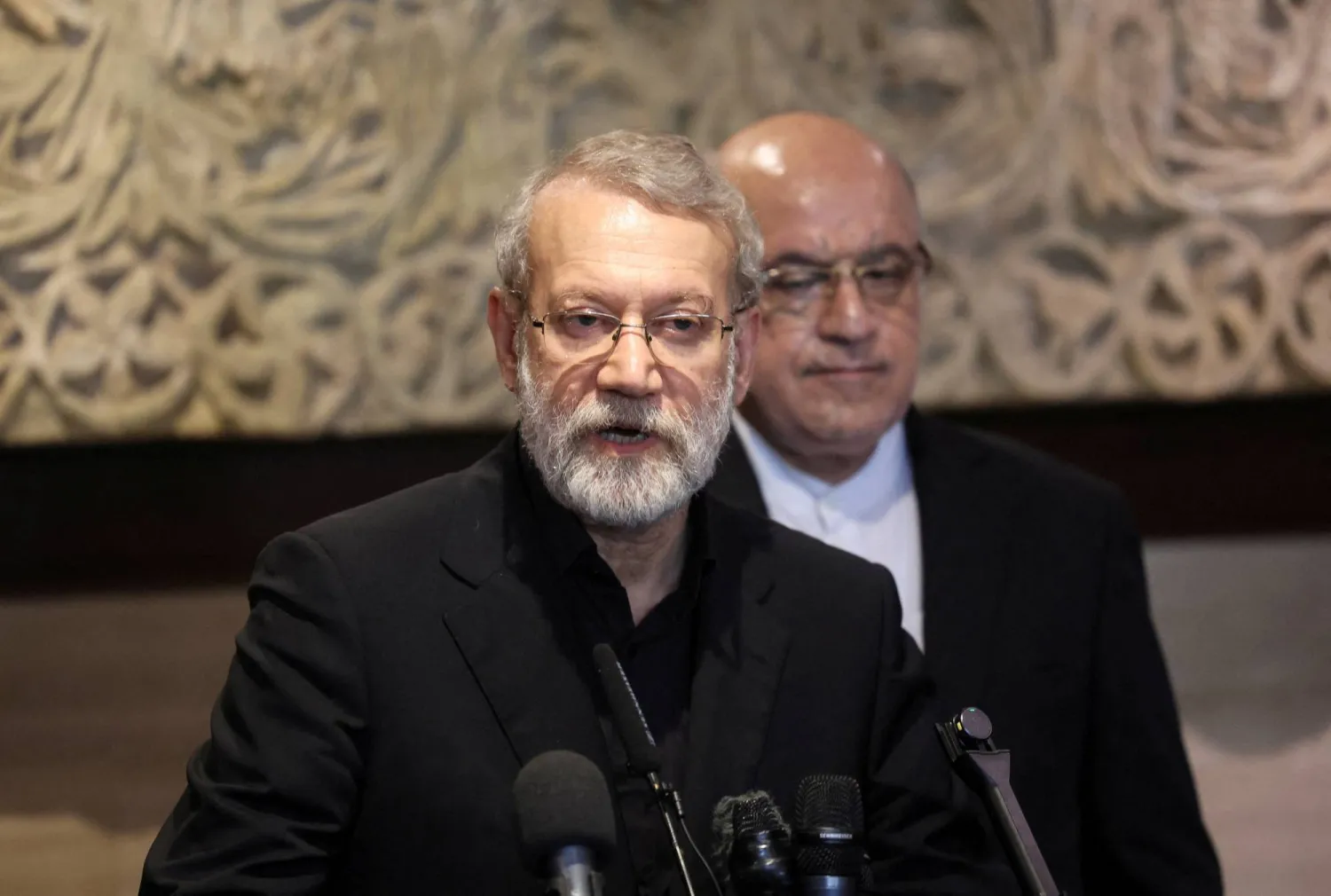The secretary of Iran's top security body arrived in Oman on Tuesday, amid Iranian warning of "destructive" influence on diplomacy ahead of Israeli Prime Minister Benjamin Netanyahu's visit to Washington for talks expected to focus on US negotiations with Tehran.
"Our negotiating party is America. It is up to America to decide to act independently of the pressures and destructive influences that are detrimental to the region," said Iranian foreign ministry spokesman Esmail Baqaei in a weekly press briefing.
"The Zionist regime has repeatedly, as a saboteur, shown that it opposes any diplomatic process in our region that leads to peace."
Ali Larijani, who heads the Supreme National Security Council, is expected to hold talks with Haitham bin Tariq, the Sultan of Oman, and Foreign Minister Badr bin Hamad al-Busaidi, Iran's state news agency IRNA reported.
They will discuss the latest regional and international developments as well as economic cooperation between Iran and Oman, the news agency said.
Tehran and Washington resumed talks in Muscat on Friday, months after earlier negotiations collapsed following Israel's unprecedented bombing campaign against Iran last June, which triggered a 12-day war.
During the conflict, Israel targeted senior Iranian military officials, nuclear scientists and nuclear sites, as well as residential areas.
The United States later joined the campaign, launching its own strikes on key Iranian nuclear facilities.
Iran responded with drone and missile attacks on Israel and by targeting the largest US military base in the Middle East, located in Qatar.
"The June experience was a very bad experience. Therefore, taking these experiences into account, we are determined to secure Iran's national interests through diplomacy," Baqaei said.
He insisted that Iran's focus would remain strictly on the nuclear file in return for sanctions relief.
Tehran has repeatedly said it rejects any negotiations that extend beyond that issue.
On Saturday, Netanyahu's office said in a statement that the Israeli premier "believes any negotiations must include limitations on ballistic missiles and a halting of the support for the Iranian axis" -- referring to Iran's allied armed groups in the region.
The talks followed threats from Washington and the deployment of a US aircraft carrier group to the region after Iran's deadly crackdown on anti-government protests last month.
Iranian authorities said the protests, which erupted in late December over the rising cost of living, began as peaceful demonstrations before turning into "riots" involving killings and vandalism, which they said were inflamed by the United States and Israel.









